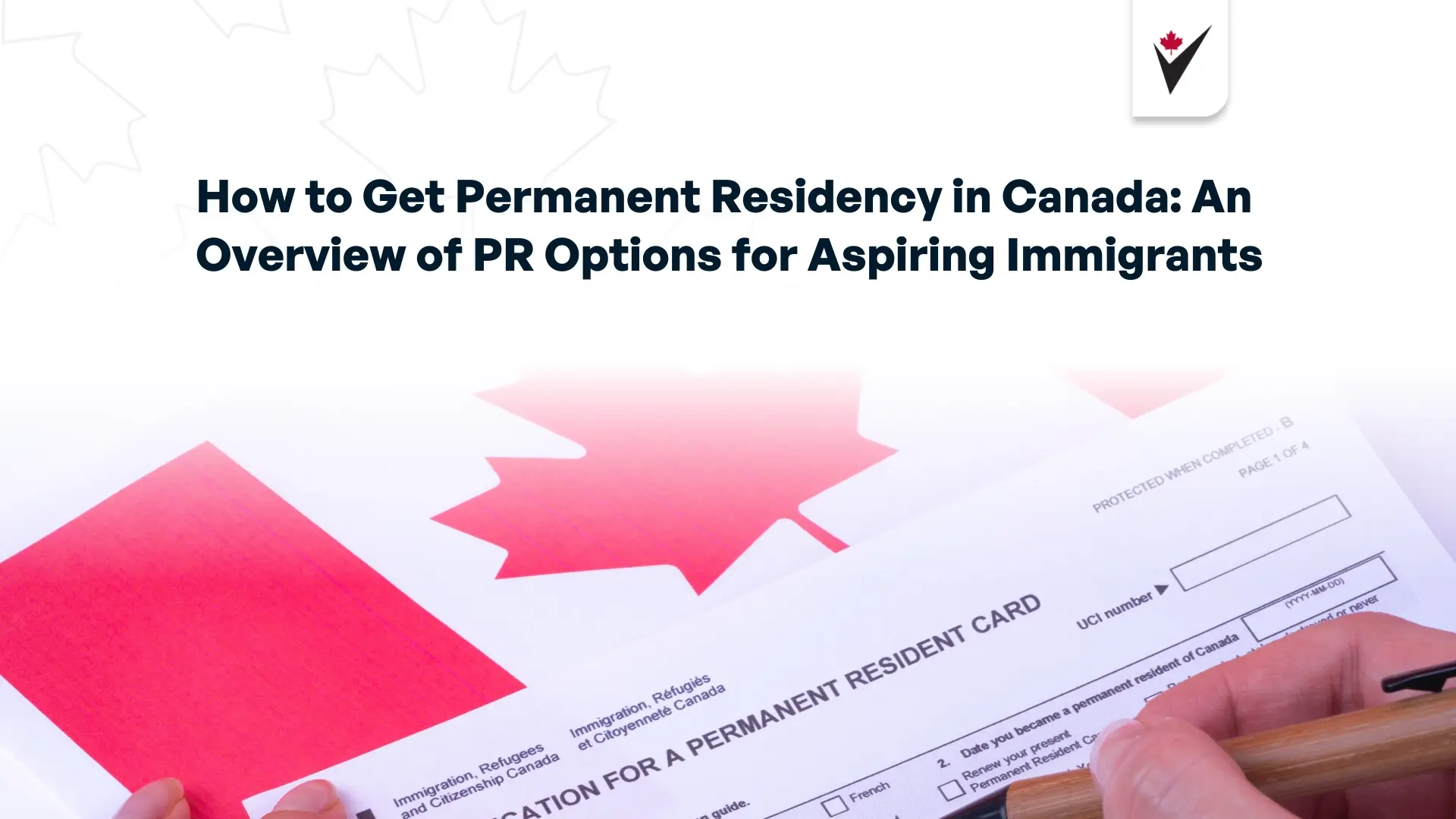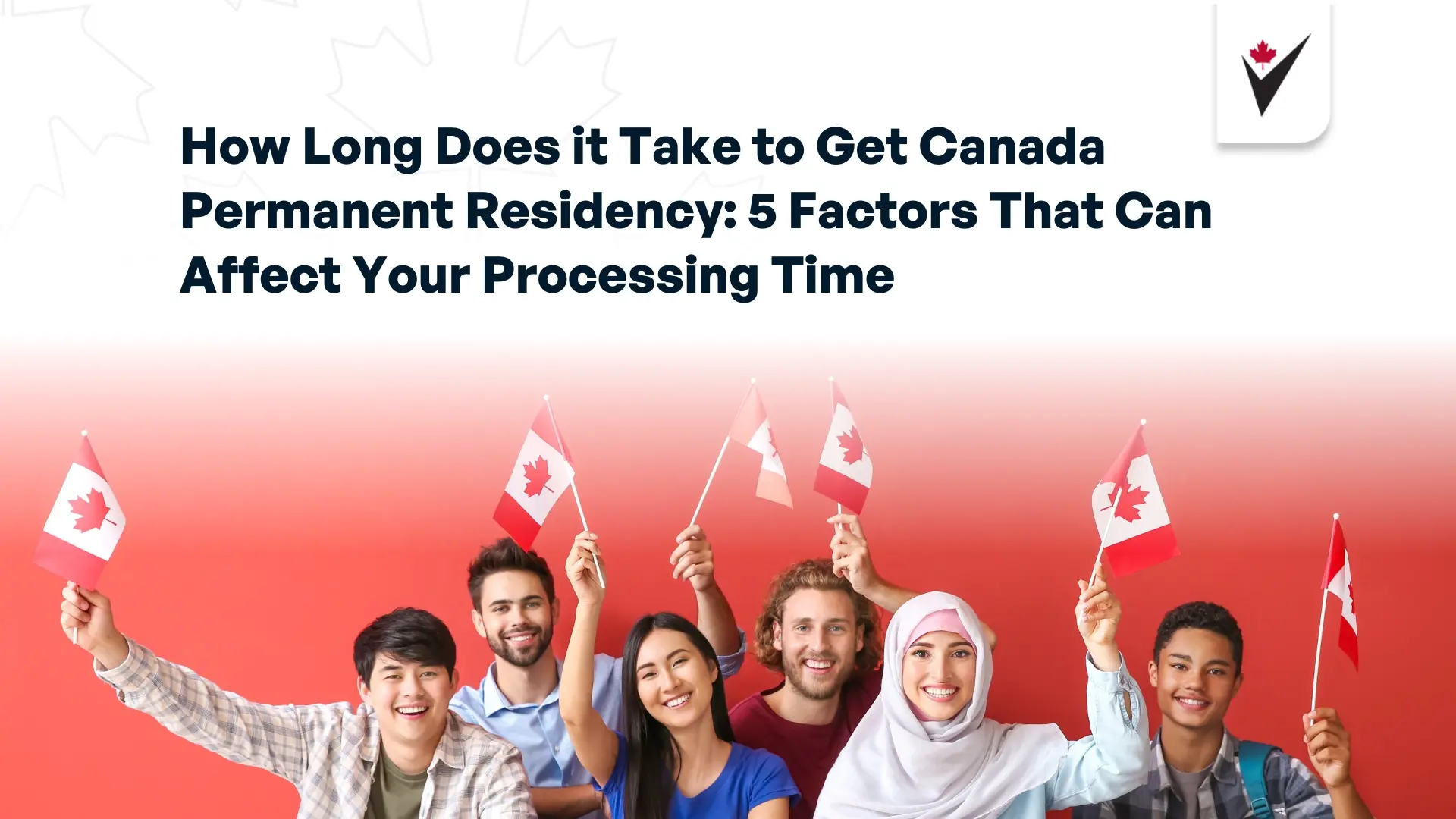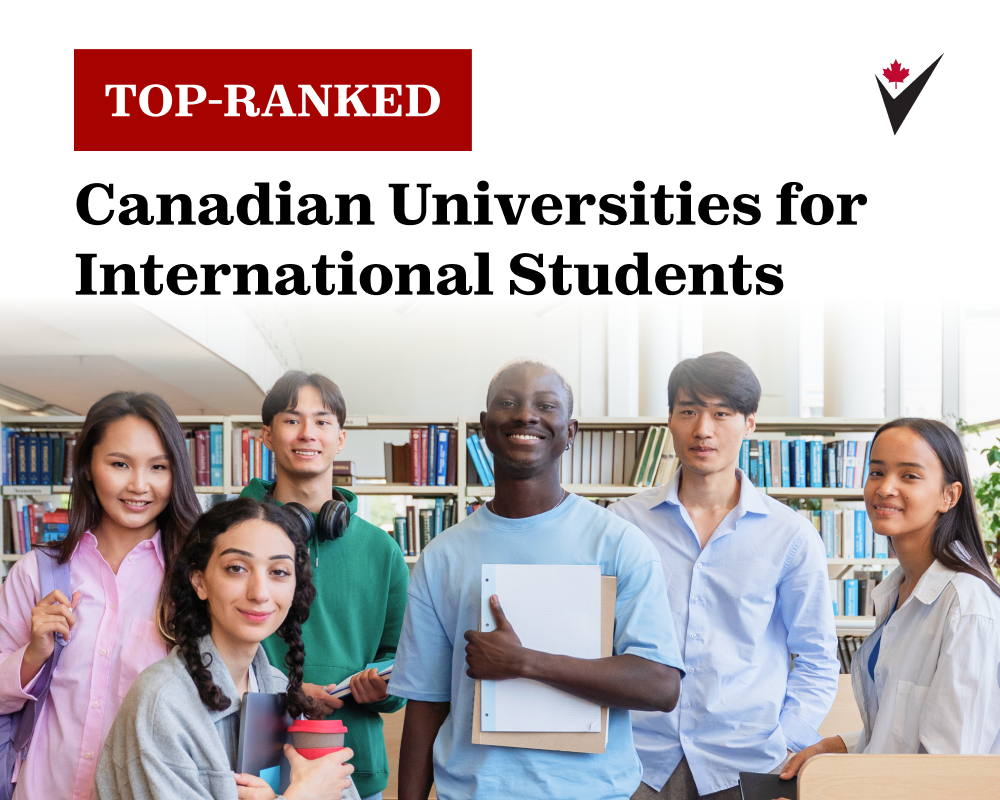- Invest
- Business Immigration
Business Immigration Consultant
The professional business immigration help you need to make your Canadian investment a reality.

Regulated Canadian Immigration Consultants (RCIC-IRB)
Proudly regulated by and in good standing with the College of Immigration and Citizenship Consultants (CICC). Registration #: R507233.

Navigate Your Canadian Business Immigration Journey with Expert Help
Canada offers many programs for international entrepreneurs to invest and settle permanently in the country. These programs are designed to promote economic development in Canada by encouraging investment, entrepreneurship, and employment using foreign venture capital, business acumen, and entrepreneurial skills.
Entrepreneurs can apply for business immigration programs and obtain permanent residence or start applying for a work permit, work in Canada, and obtain the required experience to apply for permanent residency. Canada also offers programs for international students who want to start or acquire a Canadian business.
If you want to open or purchase a business in Canada and immigrate to the country as an investor, CanDo’s business immigration consultants can help. We will guide you in making the most successful choice among the various provincial and federal business immigration programs in Canada.

In addition to helping you with the immigration applications under the business category, we can assist you with:
- Identifying suitable business opportunities
- Establishing corporate structures
- Arranging for assistance with corporate due diligence
- Corporate legal administration
- Acquiring financial services and advice
- Referrals to experts to help with business negotiations, acquisitions, and purchases
Canada’s Federal Business Immigration Programs
Temporary Foreign Worker Program
The Temporary Foreign Worker Program (TFWP) is the stream for a Canadian company to hire foreign nationals who do not hold an open work permit or study permit. It is also used for business owners/operators wishing to temporarily work in Canada operating a business.
A Labour Market Impact Assessment (LMIA) application is required to determine if the employer is allowed to hire a foreign worker to operate its business. These applications will be assessed using the normal process for LMIA applications.
Applicants must meet all the regular LMIA requirements. After obtaining a positive LMIA, the business owner/operator can apply for a work permit and, if approved, start operating the business in Canada.
If the business owner/operator wishes to live permanently in Canada, they can apply for permanent residency. A positive LMIA gives the candidate extra points when applying for PR via the Federal Express Entry.
International Mobility Program
Entrepreneur or Self-Employed Category
The International Mobility Program allows entrepreneurs or self-employed foreigners seeking to open a new business in Canada or buy an existing one to temporarily work and operate the company while in Canada without an LMIA.
Under the Entrepreneur or Self-Employed category, a two-year work permit will be granted to qualified applicants. As this is a temporary authorization to work in Canada, applicants must convince immigration officers they will leave the country at the end of the period permitted for their stay.
Work permits issued under this program can be extended, provided the entrepreneur meets specific criteria to remain in Canada for the long term.
Applicants need to show that their admission to Canada to operate their business would generate significant economic, social or cultural benefits or opportunities for Canadian citizens or permanent residents.
Applicants must own at least 50% of the business to be eligible for a work permit through the International Mobility Program – entrepreneur or self-employed category.
Canada-United States-Mexico Agreement (CUSMA)
The Canada-United States-Mexico Agreement facilitates trade, eliminates barriers to doing business and removes the need for an LMIA for all business persons covered by the Agreement.
Under CUSMA, U.S. and Mexican citizens can enter Canada to operate a business for the purpose of trading goods or services.
Business visitors from these countries are not required to hold a work permit. The other categories of business persons who can enter Canada through the IMP-CUSMA first need to obtain a work permit.
Start-Up Visa Program
Designed for entrepreneurs with innovative ideas, skills, and the ability to start and grow a business in Canada, the Start-Up Visa Program is an option for investing in the country and a pathway for Canadian permanent residency.
To apply for the Start-Up Visa Program, entrepreneurs need a qualifying business and support from venture capital funds, an angel investor group, and/or a business incubator listed as designated organizations by Immigration Canada.
Self-Employed Persons Program
Self-employed persons with relevant experience in cultural activities or athletics and who wish to live permanently in Canada can apply for the Self-Employed Persons Program. The applicant must be willing and able to make a significant contribution to the cultural or athletic life of Canada.
At least two years of experience are required to qualify for this program.
Provincial Business Immigration Programs
Provincial Nominee Programs (PNP) Entrepreneur Immigration
Provincial nominee programs are available for entrepreneurs and business persons willing to invest in Canada and who want to contribute to the economic development of small communities, as well as obtain permanent residency in a timely manner.
In general, provincial business immigration programs offer lower costs and language skills requirements and have shorter processing times.Why Trust CanDo as Your Canadian Business Immigration Consultant
CanDo Immigration offers exceptional Canadian business immigration consulting services rooted in our core values of excellence, honesty, passion, and respect. It’s our mission to ensure each application is meticulously prepared to meet the stringent requirements set by the Canadian government.
Three Decades of Experience
With 35+ years of experience, our Canadian business immigration consultants have extensive knowledge of the diverse Canadian business immigration programs. We are dedicated to helping aspiring immigrants make their Canadian dreams a reality.
A Dedicated Partner
Our team of immigration consultants will help you every step of the way. We will assess your eligibility for the existing business immigration streams, recommend your best options, develop a personalized action plan, and prepare and submit your application in a timely and efficient manner.
A Tailored Approach to Your Application
Each application is unique because business immigration to Canada is unique. That’s why our specialized immigration consultants work with you directly to develop a custom approach that maximizes your chances of a successful application.
We Believe in Transparency and Trust
At CanDo Immigration, our team of dedicated Canadian immigration consultants is here to guide you through every step of the process with steadfast honesty and integrity. We keep communication open and clear, making sure you stay fully informed at every stage.
Success Stories From Our Canadian Business Immigration Services
Learn About All of the Great Things
Canada Has to Offer!
Canadian Immigration News, Tips, and Resources

How to Get Permanent Residency in Canada: An Overview of PR Options for Aspiring Immigrants
For many aspiring immigrants, the dream of building a new life in Canada begins with securing permanent residency. Canada offers a welcoming environment, a high quality of life, and a wealth of
read more
How Long Does it Take to Get Canada Permanent Residency: 5 Factors That Can Affect Your Processing Time
If you’re seeking permanent residency in Canada, one of the most pressing questions you may have is: how long does it take to get Canada permanent residency? The waiting period can be a significant
read more
Top-Ranked Canadian Universities for International Students
Every year, Canada welcomes hundreds of thousands of international students. When you study in Canada, you invest in your future. In this article, we’ll explain why Canada is an ideal destination for
read moreFind Your Licensed Business Immigration Consultant Wherever You Are Located
We assist clients across Canada and internationally. See the countries below to find your regulated Canadian immigration consultant.
Take a Free
Assessment
Complete our free assessment to find out your eligibility to immigrate to Canada.
FREE IMMIGRATION ASSESSMENT
Frequently Asked Questions
What are the eligibility requirements for business immigration to Canada?
Each business immigration program has its own requirements. In general, to apply for Canada business immigration streams, investors need the financial ability to start and operate a business and settle in Canada. They also need to be able to communicate in English or French.
Do I need a business immigration lawyer to emigrate to Canada as an investor?
A Canadian business immigration lawyer may be needed when specialized legal services or advice are required for intricate business immigration cases involving legal contracts. However, in most cases, a regulated Canadian business immigration consultant can effectively assist you in all matters related to your business immigration to Canada.
How can I show that my business can generate significant economic benefits in Canada?
Immigration, Refugees, and Citizenship Canada (IRCC) considers the following factors to define if the benefit is significant:
- The work is likely to create a viable business that will benefit Canadian or permanent resident workers, or provide economic stimulus
- The applicant has a particular background or skills that will improve the viability of the business
- There is a business plan that clearly shows that the applicant has taken steps to initiate their business
- The applicant has taken some measures to implement the business plan, showing evidence of having the financial ability to begin the business and pay expenditures, renting space, having a staffing plan, obtaining a business number, showing business ownership documents or agreements, etc.
What categories of business persons can enter Canada under the CUSMA?
- Business visitors: do not need a work permit to enter Canada
- Professionals (according to the list of eligible professions under the CUSMA): need a work permit to enter Canada
- Intra-company transferees: need a work permit to enter Canada
- Traders and investors: need a work permit to enter Canada
What is required for the start-up visa program?
- It is mandatory that applicants and the designated organization jointly hold more than 50% of the total voting rights at the time of submission.
- A complete, detailed, and well-elaborated business plan is essential to increase the chances of a successful application.
- A work permit is needed to start working in Canada. Upon receiving a commitment certificate and a support letter from one or more designated organizations, the investor can apply for a work permit.
- The minimum language requirement for this program is level 5 of CLB (Canadian Language Benchmark) in either English or French in all four skills.
- Applicants need to provide biometrics, medical exams, police certificates, and proof of having enough money to afford the costs of settling in Canada.
- By the end of the permanent residence process, the applicant needs to demonstrate active and ongoing management of the business from within Canada, that the business is incorporated in Canada, and that an essential part of the operations of the business happens in Canada.
What business immigration programs in Canada are offered by each province?
The following provincial business immigration programs are offered:
British Columbia
- British Columbia Provincial Nominee Program (BC PNP) Entrepreneur Immigration Base Category
- British Columbia Provincial Nominee Program (BC PNP) Entrepreneur Immigration - Regional Pilot
- British Columbia Provincial Nominee Program (BC PNP) Strategic Projects
Quebec
Alberta
- Alberta Foreign Graduate Start-up Visa Stream
- Alberta International Graduate Entrepreneur Immigration
- Alberta Self-Employed Farmer Stream
Manitoba
- Manitoba Provincial Nominee Program — Business Investor Stream (Entrepreneur Pathway)
- Manitoba Provincial Nominee Program — Business Investor Stream (Farm Investor Pathway)
New Brunswick
Ontario
Prince Edward Island
Saskatchewan
- Saskatchewan Immigrant Nominee Program (SINP) - Entrepreneur Category
- Saskatchewan Immigrant Nominee Program (SINP) - Farm Owner/Operator Category
Yukon
Nova Scotia
- Nova Scotia Nominee Program (NSNP) — Entrepreneur Stream
- Nova Scotia Nominee Program (NSNP) — International Graduate Entrepreneur Stream
